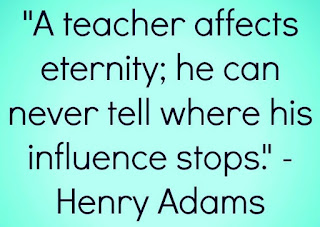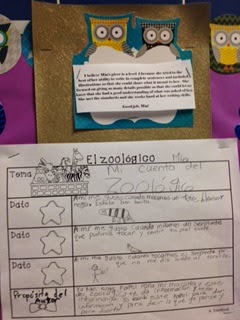Teacher appreciation week should be all year long, BUT since it is this week, is
a great time to ensure teachers know how much their daily efforts are appreciated. Teacher appreciation comes at a great time in
the school year when teachers need a power boost to make it to the end of the year. As I read all the tweets and
blog posts about teacher appreciation this week I thought about lessons I
learned from teachers that impacted my life.
Here is a list of the lessons that I learned and how I have
used each lesson to impact my practice as an educator.
·
Relationships
Matter - Teachers who cared about me made a huge difference in my life. They took the time to understand what I liked,
what my goals were and they were genuinely interested in me. To this day I make sure that my staff knows I
care for them. I do this by engaging
with them in conversation, asking about family, their weekend, their goals and aspirations,
I ask their opinions, and I make them feel appreciated. I had a campus principal
tell me in my second teaching job that kids don’t care unless they know we care
(teachers don’t either) – Such great advice!
·
Humor Helps - Something that stood out
about great teachers is that they had a great sense of humor. This skill helped me learn to laugh at myself
in stressful times and to laugh with and not at others. To this day, I enjoy the sound of laughter in
a classroom and in my team meetings.
Laughter is always good for the soul.
·
Praise
is Valued - I remember that my
teachers always had authentic praise for those in my class. Every student needs encouragement, not just a
“good job” but true authentic praise for true effort. Everyone brings something valuable to the
table on your team or in your class. Let
them know you see their hard work and that their effort is paying off.
·
Positive
Attitudes are Contagious– This definitely set great teachers apart from other
teachers. Walking into a classroom or
meeting where there is positive energy is such a pleasant feeling. As a student I dreaded the class that the
teacher was always unpredictable when it came to their mood. I learned that a positive attitude goes a
long way. Your attitude should not be a guessing
game for students or those who work for with you. How’s your attitude?
I want to thank my many great teachers for the lessons they
taught me without knowing it. These
skills have served me well as an educator and person.
To all my teacher friends out there- THANK YOU!






